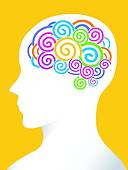As a survivor, let me start by saying this topic isn’t simple, nor is it your responsibility. But if you’re reading this far in, you have obviously gotten to a place where you’ve decided you need to help and you aren’t sure of your next moves. To give you context, I struggled with eating disorders from the time I was 11 until I was a full grown adult. Eleven! The thought now of child-me even having those thoughts makes my stomach turn, but that’s how powerful mental illness can be. And let’s be clear —this is a mental illness. No matter how badly these studies want eating disorders to be external (celebrity influence, Instagram) they really are an internal war due to an imbalance of brain chemicals and a feeling of a lack of control.
Now I won’t say the online availability of diet pills, “thinspo” (thin-spiration blogs and photos) and body shaming hasn’t contributed, or at least made the symptoms of eating disorders sink their teeth in a little further, but I will say the first thing to understand if someone you love is going through this is that they aren’t struggling with their own beauty or vanity in the ways that you think. They are struggling with security, with control.

One of the simplest and most powerful things you can control in your life is what goes into your body. When I was feeling out of control, I could regiment what I ate. In Jr. high, I would skip breakfast, throw out my lunch, and have whatever amount of supper I could get away with in front of my parents, saying I was “full from lunch” or “from snacks I’d had earlier.” This would have been unreasonable even if I was a normal kid that played video games after school, but I was an athlete. I had synchronized swimming practice for 3-4 hours after school and 4-5 hours on the weekend. That kind of exercise requires constant eating to maintain and I suffered immense exhaustion and was sick frequently.
So why did I continue?
The answer is complicated but also fairly simple: I needed to feel in control of something in my life.
I didn’t know at the time but I had been suffering from anxiety and depression throughout my childhood and it really took root in my teenage years. I had no tools to deal with it, I had no one close to me that recognized these signs, and I think mostly, I felt guilty for not being more prepared for my day-to-day. I felt like I was drowning quietly under the surface of my life.
A-student, strong athlete, nice girl. I never let the cracks show.
So here’s where you come in. If you were my friend at the time, you may have tried to talk to me about it, maybe even tried to convince me to eat on a few occasions, genuinely believing that food would cure my eating disorder. But here’s the secret: eating disorders equate to addictions. If you think of someone with an eating disorder like an addict, then you understand the shame, secrecy, and dependence wrapped up in our behaviours. You also understand that going cold-turkey isn’t typically the best plan, and there are far more factors that require counselling and therapy and psychiatric medication.
Approach conversations with your loved one knowing that many things you say may be taken as accusations and judgements. Try to ask more questions rather than point any fingers at any shadows they may be trying to hide. Have open, honest discussions about mental health in positive, loving ways. Share your own struggles. Talk about options for support and healing.
The worst feeling is being unable to fix someone’s problems, but I would offer to you that a worse feeling is being unable to fix your problems for someone.
If you or someone you love is struggling with mental health and eating disorders, here are some links you can follow for more information about help.

